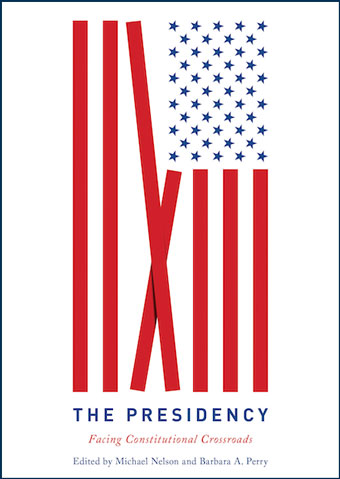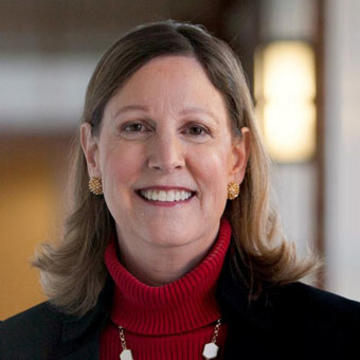The personal presidency
The founders’ formal office is being overtaken not just by the rhetorical but by the demagogic presidency
Excerpted from The Presidency: Facing a Constitutional Crossroads, edited by Barbara Perry and Michael Nelson, University of Virginia Press, 2021.
Jeffrey Tulis has argued that there are “two constitutional presidencies”: the Founders’ formal office established by the Constitution of 1789 with checks on popular will, and the informal modern presidency created by Woodrow Wilson based on popular rhetorical leadership. Theodore Lowi viewed rhetoric-centric presidents as in turn creating the “personal presidency,” which he defined as “an office of tremendous personal power drawn from the people—directly and through Congress and the Supreme Court—and based on the new democratic theory that the presidency with all its powers is the necessary condition for governing a large, democratic nation.”
As the rhetorical presidency has expanded its personal dimensions and grown ever closer to and more dependent on the people, has it evolved into a third constitutional presidency? And is it now unconstitutional? Has the current presidency now reached its most critical crossroads?
![Cover of the book "The Presidency"]() Presidents and the People
Presidents and the People
The United States, newly independent from a monarchical colonial power, established a democracy but not one directly governed by the people. Instead, the Framers created a republic, with checks and balances both on the vox populi and on those chosen to govern. Yet they worried that republics, even with structural safeguards like the Electoral College, can collapse when the people assume a disproportionate voice in government. Worst in the Founders’ estimation was the potential rise to power of demagogues. From the ancient Greek term for leaders of the mob, the word has evolved to mean “an unscrupulous politician who seeks to hold office through emotional appeals to mass prejudices and passions. Half-truths [and] outright lies . . . may be used in attempts to dupe the voters. Typically, a demagogue may try to win support from one group by blaming another for its misfortunes.”
The Framers mistrusted voters even like themselves.
Alexander Hamilton wrote that “of those men who have overturned the liberties of republics, the greatest number have begun their career by paying an obsequious court to the people; commencing demagogues, and ending tyrants.” Never mind that “the people” to whom politicians could appeal for votes in the founding era included only white male property-owners. The Framers mistrusted voters even like themselves, providing for direct election of just the House of Representatives.
Woodrow Wilson, a political scientist, did not advocate direct democracy. Rather, he saw presidents as “leader-interpreters,” who would educate the public. Arriving in the White House in 1913 at the dawn of the modern mass media age, he knew that presidents could now reach the American electorate directly through copies of speeches circulated throughout the country. Twentieth-century advances in travel allowed him to whistle-stop across the nation to campaign for Senate ratification of the Versailles Treaty. Ultimately, the stresses of train travel not only went for naught, as the Senate defeated the treaty, but also cost Wilson his health when a massive stroke felled him after his return to Washington. Yet presidents would never reverse course from the turn he had taken directly toward the people.
FDR’s baritone voice over the radio resonated with the people, despite his patrician New York accent.
Franklin Roosevelt became the first successful electronic media president, with his masterful use of radio and newsreels to convey messages and images. Still photos and newsreel cameras captured the jaunty upturned chin and broad smile of the man whom Winston Churchill described meeting as “like opening your first bottle of champagne.” Such bubbly optimism was just what the nation craved in the depths of the Great Depression and in the long struggle of World War II.
FDR’s baritone voice over the radio resonated with the people, despite his patrician New York accent, and his resounding rhetoric soothed, inspired, and uplifted a distressed nation. Families gathering in their living rooms, patrons listening in bars, drivers tuning in to car radios were all united as they listened to his fireside chats. To be sure, those he called “royalists,” business elites and other conservatives who despised government regulation, preferred not to utter his name, calling him “that man.” But to the average American he was a hero.


